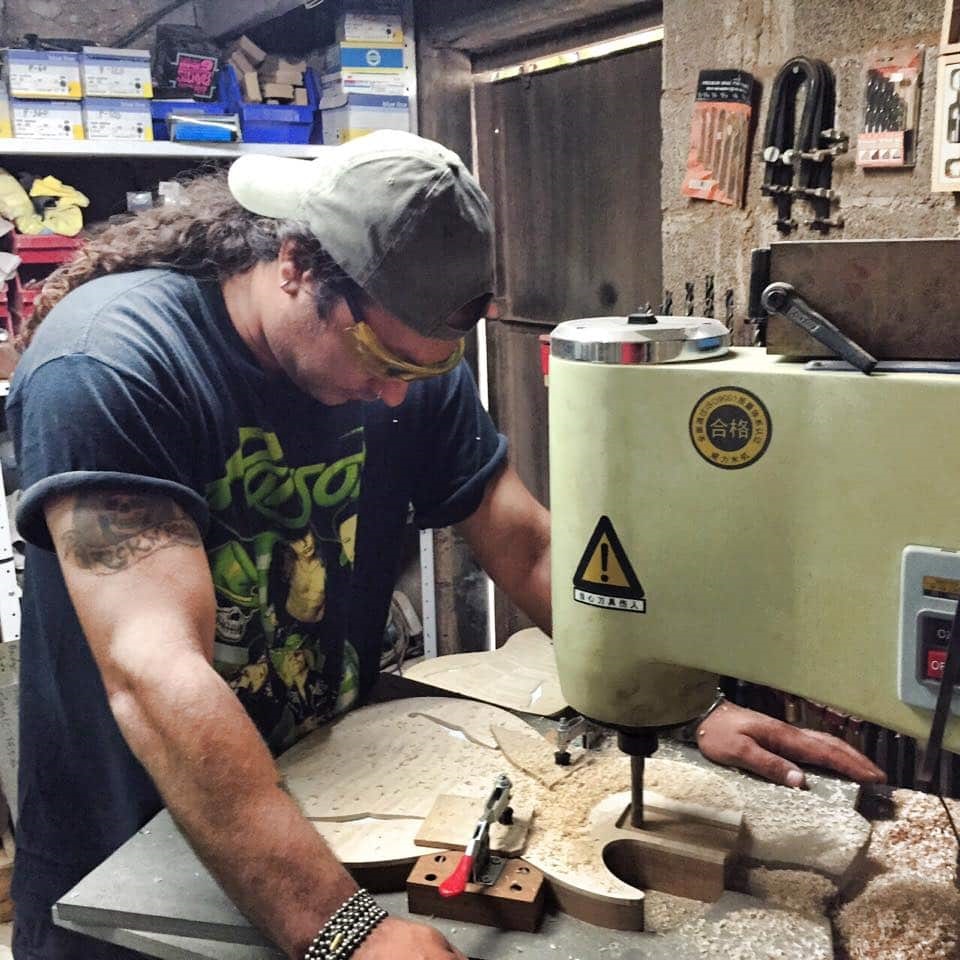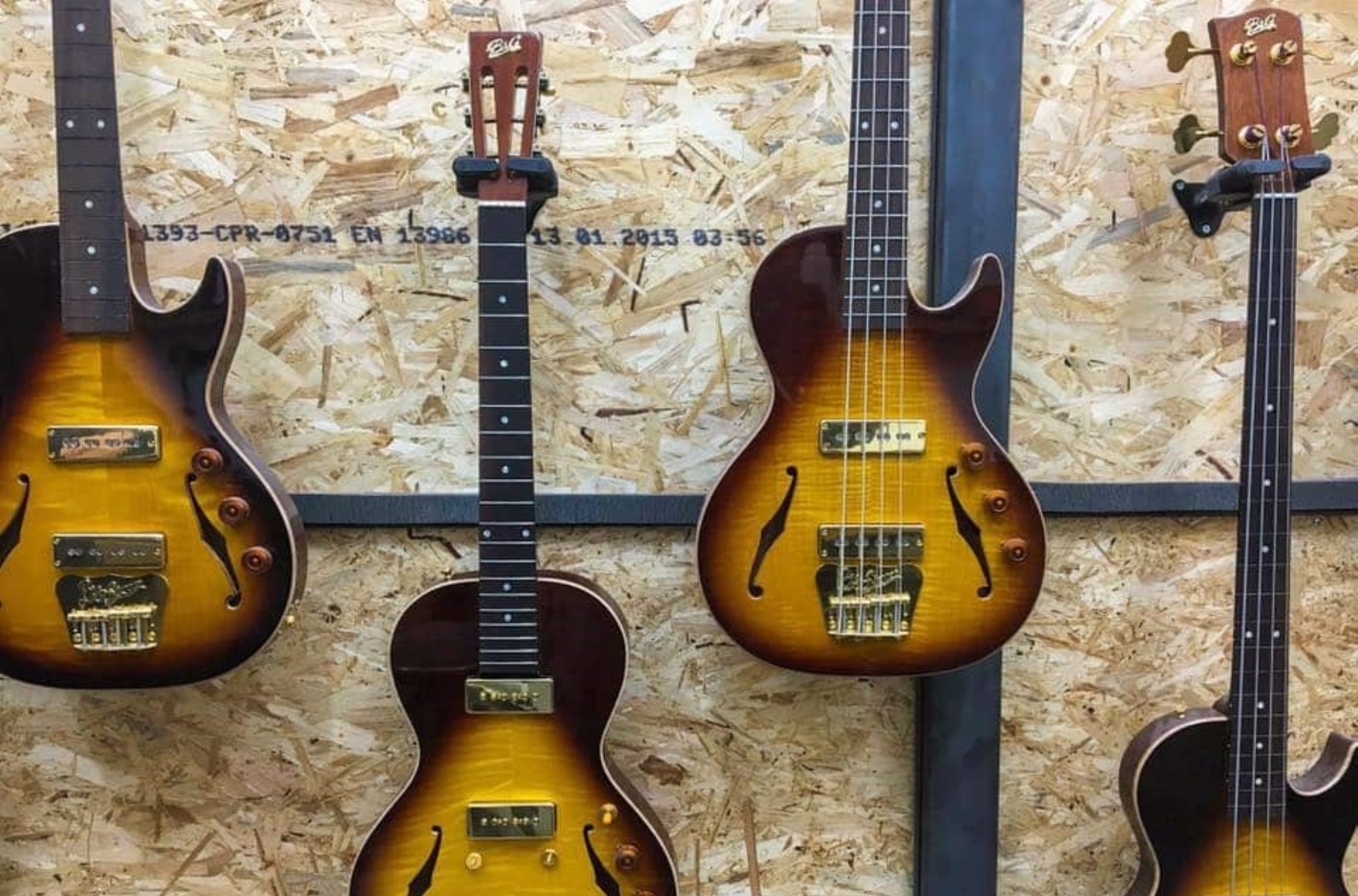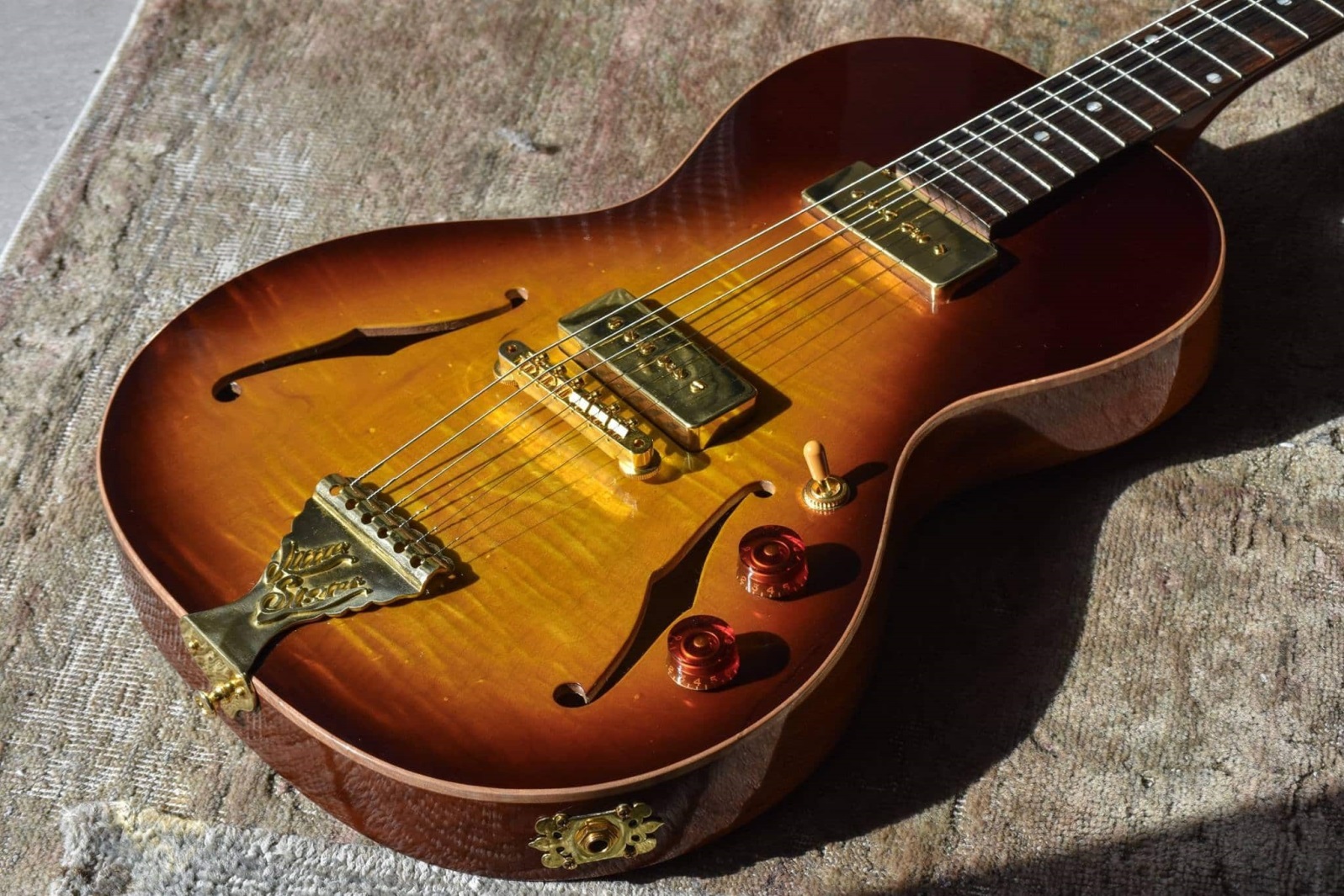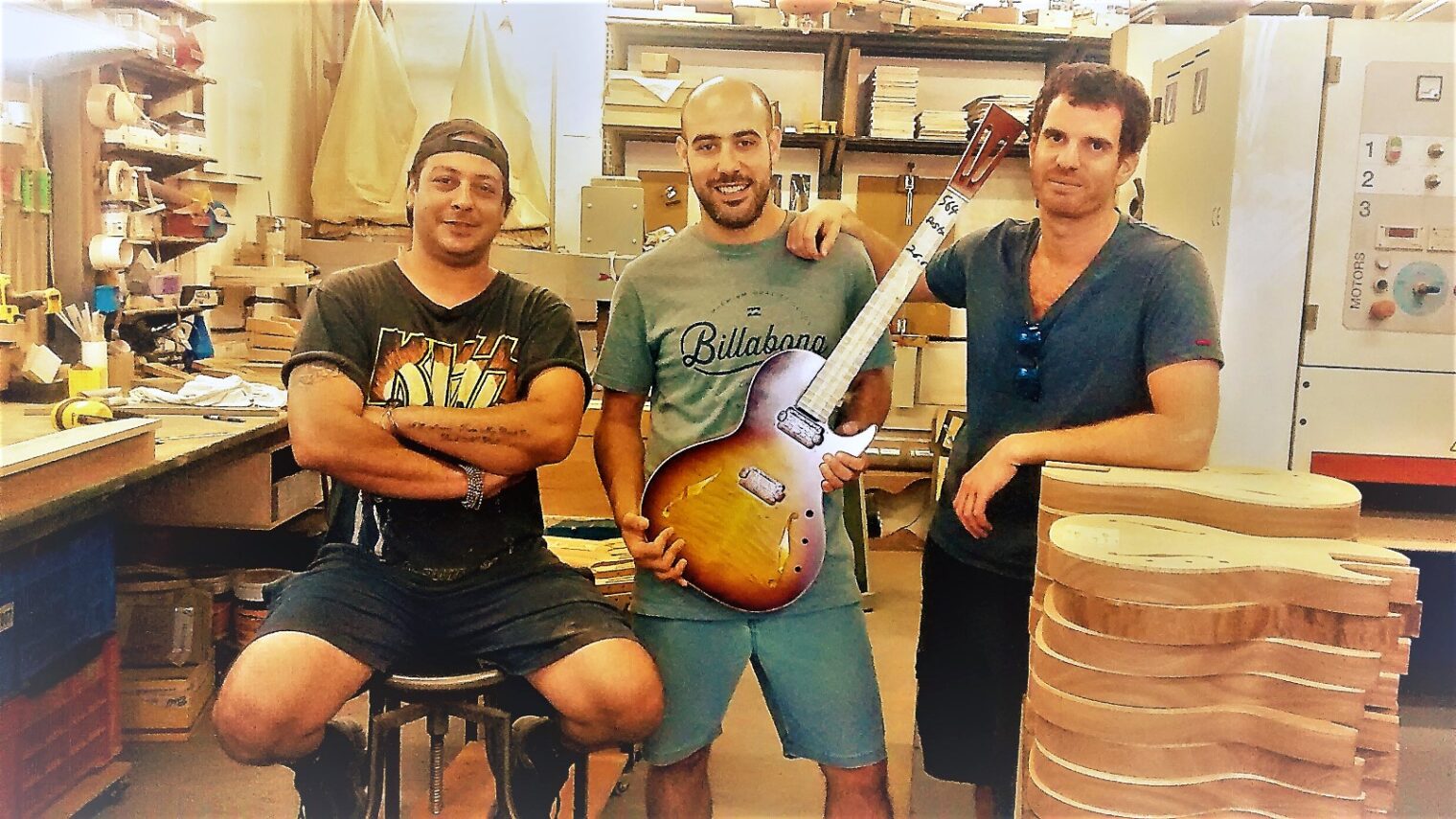Not far from the Old Jaffa port, on the corner of Abulafia Street in Tel Aviv, there’s a small guitar workshop where boutique guitars are handcrafted for customers as far away as Singapore, Hawaii and Dubai.
Cofounders Yotam “Kiki” Goldstein and Eliran Barashi, together with company CEO Avi Goldfinger, have been making and selling B&G Guitars for a little more than two years.
“It’s not just about crafting a guitar; it’s also about crafting the best sound possible,” Goldstein tells ISRAEL21C. “People who appreciate craftsmanship and classical brands buy our guitars.”
Most of the materials, including the brass hardware and even the glue and grain filler, are made by the B&G team. The woods used for the guitar bodies, however, come from all over the world including Africa, Honduras, Brazil, India, Canada and the United States.
Most customers buy the guitars online, having never stepped foot in the factory or held a B&G guitar. The company’s innovative website features videos and detailed explanations regarding guitar models. Online customers can choose the guitar’s maple top and custom-select the color finish, choosing a variety of finishes including cherry burst and natural wood.
“Our guitars are not trendy cheap guitars that last for a year; they are vintage guitars that last a lifetime,” says Goldstein. He and Barashi are expert luthiers.
“When I started to play guitar at age 18, I wanted to know exactly how a guitar works so I started taking old guitars apart,” explains Goldstein. He later went on to study guitar building at the Algranati School in Ramat Hasharon, where he met Barashi. After completing a one-year luthier course, Goldstein worked as a teacher at Algranati School as well.

Before launching B&G, Goldstein and Barashi worked out of Barashi’s apartment in Jaffa, repairing and building guitars for customers in Israel and abroad for more than six years.
“We didn’t have a lot of room in the two-room apartment,” comments Barashi. “But we worked hard to figure out the most effective techniques in how to build the best guitar possible.”

Alongside their work repairing guitars and producing a few instruments a year, the two luthiers conducted extensive research about guitars, especially models from the early 1920s and mid-1950s. This led to the development of a prototype for their popular Little Sister guitar.
“We wanted to figure out what made those models such timeless classics,” says Goldstein, who collects vintage guitars. “Those early Delta blues musicians were able to draw in a listener playing only one guitar.”
During that phase of their guitar-building career, Goldfinger brought in his guitar for some repairs. An artist and entrepreneur, Goldfinger saw the business potential in the work that Barashi and Goldstein were doing and suggested they form a company. The three became partners in B&G Guitars.
“After 10 years of experience, I felt confident that we could build guitars that people would want to buy,” says Goldstein.
Today, B&G produces 30 handcrafted guitars each month, with the Little Sister Private Build, a small, parlor-size 6-string model, priced at $3,950 and the Big Sister Private Build, a 4-string bass, at $3,450.

“We’ve sold 700 private builds to date,” says Goldfinger, who notes that those guitar models are built using traditional techniques that make them unsuitable for mass production. In addition, the high-quality wood used for those guitars is difficult to source.
The company also sells the Little Sister Crossroads series, an Asia-manufactured version of the more expensive model that offers the classic B&G look and construction at a more affordable cost of $1,450.
“We travelled to China several times to meet with the manufacturers and guide them in the building process, so that the model is created exactly according to B&G standards,” says Goldfinger.
Goldfinger believes that B&G Guitars is the first guitar company to be exclusively built on online branding. “Most of our customer base is abroad and marketing is supremely important for our business. We promote our products through social-media platforms like Facebook, YouTube and Instagram,” he says.
B&G has nearly 135,000 Facebook likes and more than 16,000 followers on Instagram. The Israeli company also works with guitar dealers in the United States and in Italy, Germany, France, The Netherlands and England.
“Even though we don’t sell guitars in the massive numbers that giant guitar companies do, the B&G name is out there,” says Goldfinger. “Recently, a French tourist visited our factory and bought a guitar from us. He e-mailed us from France telling us that when he went through customs, the officer who checked his guitar became so excited when he saw it was a B&G guitar.”
“A good guitar is one that you fall in love with, both with the sound, the design, and the way it plays,” he notes. “Our understanding of this is what makes B&G guitars so unique.”
For more information, click here













